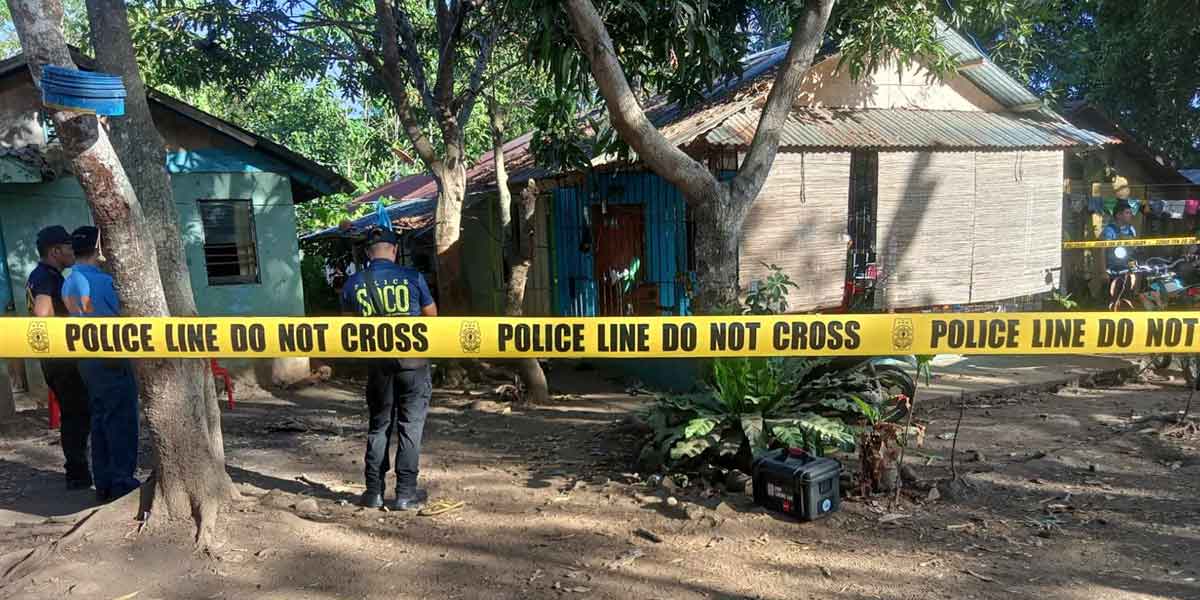
The Internal Affairs Service of the PNP (PNP-IAS) recently launched its IAS Desk which will receive and process all sorts of information and tips on the conduct of police officers.
The IAS Desk was conceived by the leadership of PNP Inspector General Atty. Alfegar M Triambulo to provide a feedback mechanism to the public on their observations of PNP personnel, positive or otherwise.
In Western Visayas, the desk was unveiled by Regional IAS-6 Director, Police Col. Calixto R Mabugat who urged the public to send their feedback to various channels offered by the desk.
According to Mabugat, the IAS Desk is a tool to provide the public and the stakeholders an avenue where they can voice out their concerns about the PNP personnel and organization without hesitation and apprehension.
They can either file a complaint against erring PNP personnel or recognize and reward PNP personnel with exemplary performances.
The specific objectives of the Desk are:
-Serve as an accessible channel to allow people to have their voices and concerns heard and be resolved with the correct course of action;
-It is a centralized tool to gather and process information from the public and other sources; and
-Yield information and datasets that can be used for research, assessment, analysis, and evaluation of the state of discipline in the PNP
What are the sources of information the desk can cater to?
One is the Complaint and Referral Monitoring Center (CRMC) which can transmit the information or tip electronically or through a memo from the walk-in complainant/informant, Report mo kay Tsip, Text PNP Hotline 8888, Presidential Complaint Center, and PNP FB Hotline, Katarungan Desk.
The public can also file their concerns as walk-in complainant/informant, letter/document, electronic messages, or the media through broadcasting, print, and the internet.
The IAS can also extract information from its related activities such as Inspection and Audit activities, Red Teaming Inspection, and the conduct of administrative investigation (motu proprio or by its own initiative and non-motu-proprio).
Police Major Ismael Gandarosa, acting provincial superintendent of the Aklan Provincial IAS, said the following information can be relayed to and processed by the Desk:
- Verified Information of Grave and Less Grave Offenses
These offenses are listed under NMC 2016-002 Rule 21, Section 2 B. Less Grave Offenses and C.
Grave Offenses.
- Unverified or Derogatory Information
Derogatory information against PNP personnel requires supporting evidence to ripen into verified information to conduct appropriate administrative action.
- Breach of Internal Discipline and Simple Offenses
It refers to any offense committed by a member of the PNP involving `offenses that disturb, insult, or contravene order and discipline within the police organization. Simple Offenses can be found under NMC 2016-002, Rule 21, Section 2, A.
- Positive Feedback
These are compliments, good deeds, and commendable acts of the PNP Personnel through social media, walk-in clients, and sources of information.
- Negative Feedback
Those that do not amount to any criminal or administrative liability. The aggrieved party only wants an apology or something to be done by the PNP personnel to satisfy the former.
- Request for Assistance
The PNP Organization is a public service office, and any concerns or inquiries shall be acted upon to build a rapport relationship with the public.
- Complaints Outside of PNP’s Jurisdiction
IAS Desk shall be easy access to the public, information not within the concern of the PNP Organization may be gathered through the system. Such information shall be acted upon and refer the same to the appropriate agency.
What happens to information submitted to the IAS Desk?
-For verified information on grave and less grave offenses, it will be forwarded to the Intelligence and Investigation Division (IID) of the IAS office concerned to initiate administrative proceedings. The criminal aspect of the case will be referred to the Directorate for Investigative and Detective Management (DIDM) for the criminal case.
-For unverified or derogatory information, the information will be submitted to the IID, IAS office concerned, which will then coordinate with the Directorate for Intelligence (DI) or the Integrity Monitoring and Enforcement Group (IMEG) for further validation.
-For breach of internal discipline, the matter will be forwarded to the commander for punishment in the exercise of disciplinary authority.
-For positive feedback, the information will be forwarded to the concerned unit and police officer for the commendation of good conduct.
-For negative feedback that does not amount to any criminal or administrative liability, appropriate corrections will be made. The police may be ordered to give an explanation to the aggrieved person for what happened, or an official apology may be provided.
-For complaints outside of the PNP’s jurisdiction, referral to the proper office (e.g. NAPOLCOM, Ombudsman, PLEB) must be made.
-All other matters and/or requests for assistance will be addressed in a case-to-case manner considering the matter requested therein and referred to the proper office.
The IAS Desk can be found in all police stations nationwide, all PNP Office/Units (National Operational Support Units/National Administrative Support Units) manned by organic PNP personnel, and all Regional, Provincial, City, and District IAS Offices.



















